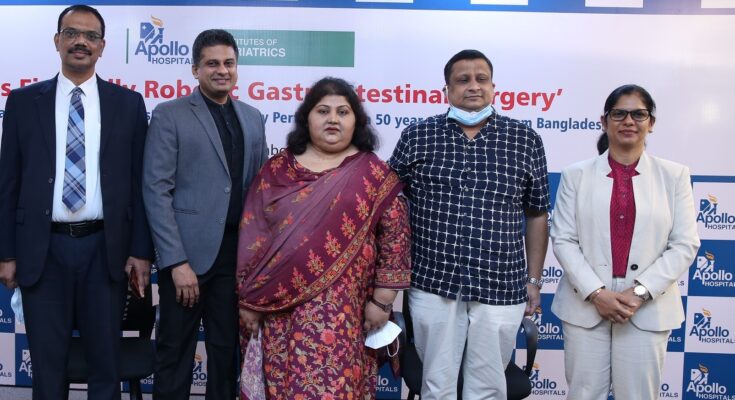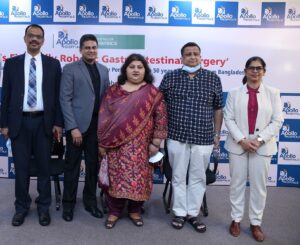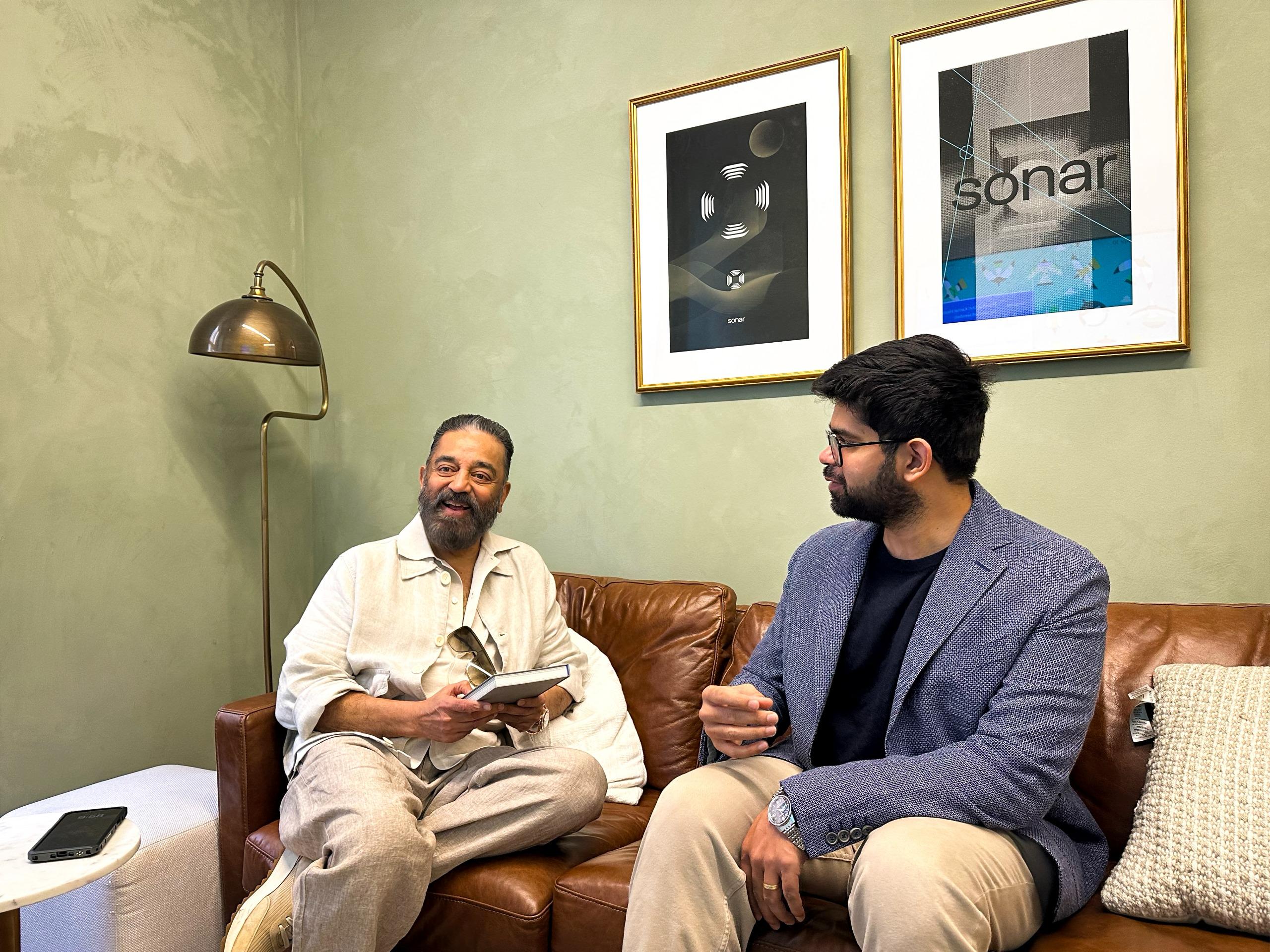First Ever Reduced Port Gastro Intestinal Surgery
Chennai: Apollo Hospital Chennai completes India’s first true robotic bariatric surgery on a 50 year old woman from Bangaladesh. With the availability of state-of-the-art technology and expertise, Apollo Chennai reached yet another robotic milestone on 8 Sep 2021 when Dr. Raj Palaniappan, Director and Lead Bariatric Surgeon, Apollo Hospitals performed India’s first fully robotic gastrointestinal surgery. He performed a complex bariatric surgery named “One Anastomotic Gastric Bypass” through just three robotic ports and performed the entire procedure without the use of any additional ports.
Mrs.Taniya, a 50 year old woman from Bangladesh, was a high risk super obese patient weighing 124 (KGs) (BMI – 51 kg/m2) with multiple comorbidities, including previous brain tumor surgery (astrocytoma), epilepsy (on tre atment), right leg weakness and numbness post the brain disease, obstructive sleep apnea, on thyroid medica tio ns after total thyroidectomy surgery, and she also had undergone two other abdominal surgeries for gallstone and fibroid uterus. She was also recently diagnosed with diabetes, hypertension and dyslipidemia. She was mo stly wheelchair bound and home bound after her substantial weight gain and was facing a life threatening situ ation due to all the above comorbidities. Bariatric procedure had to be conducted as a medical emergency on her. The procedure of bariatric surgery gives a feeling of fullness to patients and reduces their hunger, causing weight loss and significant improvements in health. This is owing to the fact that the new stomach pouch holds smaller volume than normal stomach and reduces the amount of food intake.
(L to R) Dr.Venkatachalam, DMS, Apollo Hospitals Chennai, Dr.Raj Palaniappan, Mrs. Taniya (Patient) and her husband and Ms. Santy, COO, Apollo Hospitals Chennai.
Explaining the procedure, Dr. Raj Palaniappan said, “Owing to the difficulties and risk involved in performing traditional surgery in two stages, Robotics was the only solution for her to reduce the post-operative comp lic ations and enhance the recovery along with adding safety to the metabolic bypass surgery that was planned. However, the existing hybrid robotic surgeries will be as difficult to perform as laparoscopy and may not prove to be much beneficial either. Consequently, we made arrangements through Intuitive Surgicals to procure the entire consumables required including the recently launched SUREFORM staplers for a fully robotic approach. These staplers, have multidirectional movements and 90 degree articulation, which largely reduced the diffic ulty in stapling the stomach and intestines during the surgery. Seven robotic staplers were used to complete the entire surgery robotically. Intraoperatively, due to the extensive fat cake, the bowel was not able to be mobilised well enough to complete the anastomosis which lead to a minor setback. The precision of the robotic suturing made possible this demanding step of anastomoses in such an adverse situation and we could complete with a perfect closure. This procedure is incidentally the first robotic bariatric surgery in the world to be performed in just three ports. For once, the full potential of robotic surgery has been achieved in history.”
The surgery lasted for around 150 minutes and the patient was able to recover from anesthesia and surgery uneventfully. True robotic surgery causes far less trauma to the tissue than a hybrid robotic surgery and so recovery was possible without moving the patient to ventilator or ICU care. Patient was started on oral fluids within 12 hours after surgery, mobilised with support within 48 hours and discharged with good health on the 4th day post surgery.
Speaking about the team’s achievement Ms. Preetha Reddy, Vice Chairperson, Apollo Hospitals Group, said “While the robotic surgery came as a boon for this patient, the ‘true robotic surgery’ will revolutionize the world of gastrointestinal surgical outcomes, most importantly oncology and bariatric surgeries. This adds another to the cap of Dr. Raj Palaniappan, who was the first surgeon to introduce robotic bariatric surgery in India in 2011. Apollo Hospitals always leads the forefront in bringing the best of technology and expertise to India. We look forward to the use of this new additional robotic stapler instrumentation across other specialities in the future to improve the surgical outcome for the needy Indian population.”
Post surgery the patient is doing well and her weight has reduced down by 4 kgs enabling her to move without any support. This is a remarkable achievement as her weight gain confined her to a wheel chair for the last few months. The patient’s blood sugar level and BP are now under control. The procedure will enable her to lose around 40 kgs within a year and walk comfortably and gain back complete normalcy after almost a decade.





